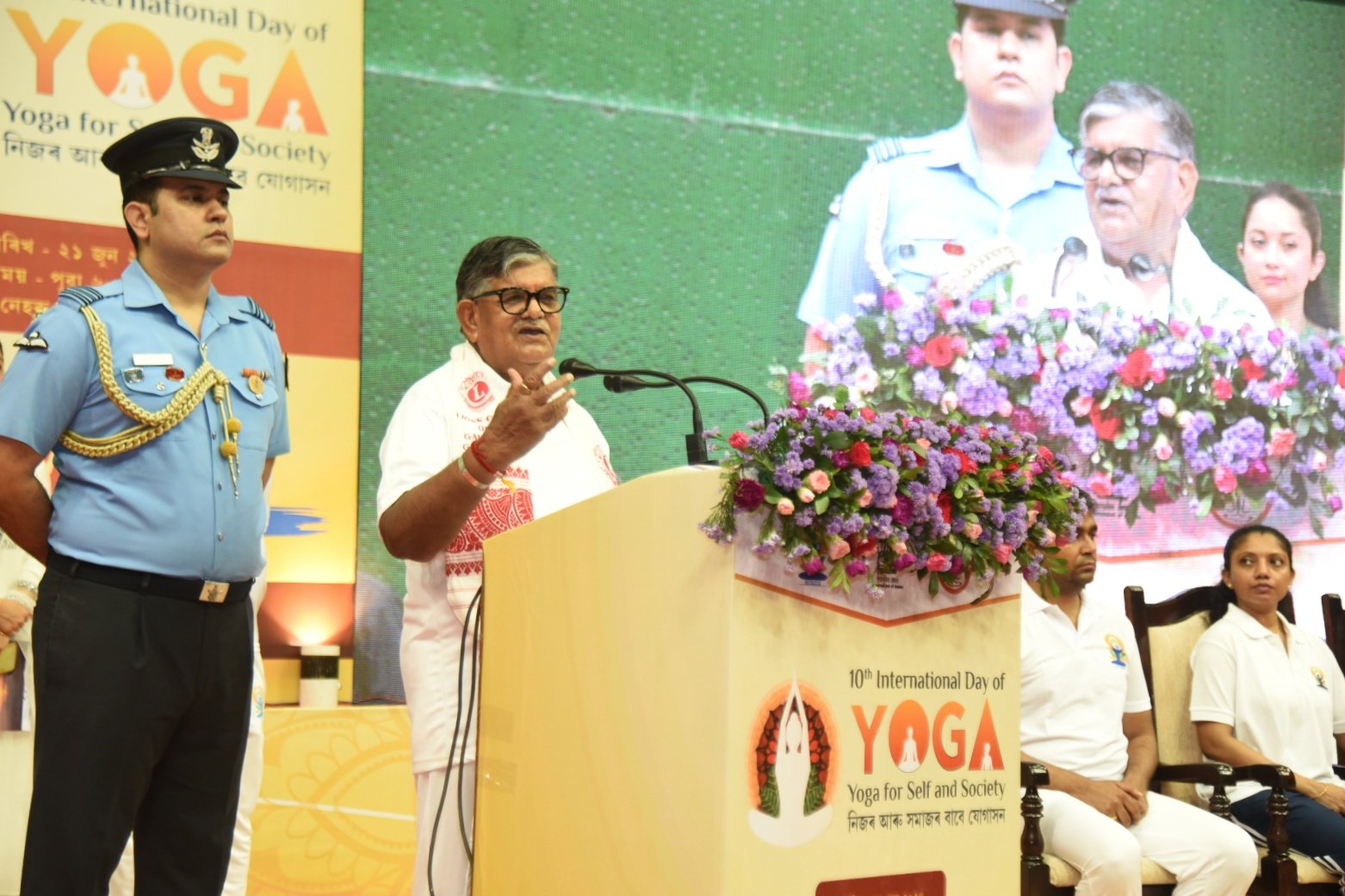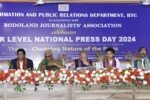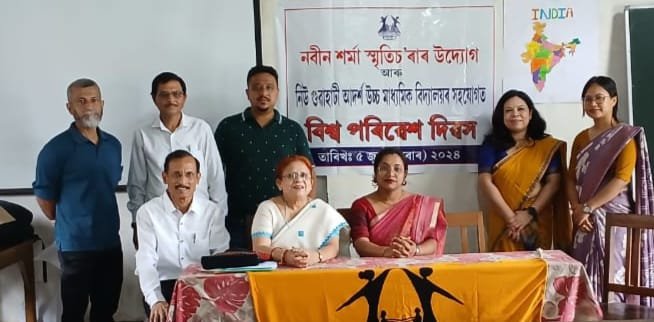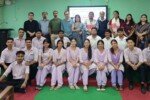HT Bureau
GUWAHATI, Feb 21: On the occasion of International Mother Language Day, observed on February 21 every year, Oxford University Press (OUP), a department of the University of Oxford, announced the launch of a bilingual English-Assamese Dictionary. International Mother Language Day, known as Matribhasha Diwas in India, is observed every year to promote the preservation and protection of linguistic and cultural diversity across the world.
An invaluable tool for bilingual learning, the Oxford English-Assamese Dictionary incorporates 34,000 words, phrases, idioms, phrasal verbs, and derivatives along with their detailed translations in Assamese. It also contains over 1,100 synonyms and antonyms and 2,000 keywords to facilitate fluency and vocabulary building in English. The design and presentation of the dictionary illustrate the rich cultural heritage, art, and linguistic identity of the state of Assam, with the cover, designed by experienced illustrator Boski Jain, featuring Assamese embroidery, a traditional craft showcasing the skill and creativity of local artisans.
The Oxford English-Assamese Dictionary has been co-authored by Jyotiprakash Tamuli, retired professor and head, department of Linguistics, Gauhati University, and Mouchumi Handique, a doctoral research scholar in the department of Linguistics, Gauhati University, where she also teaches postgraduate courses as a guest faculty. The authors are experts in lexicography and word collocations in Assamese language usage.
Launching the new Assamese dictionary, Sumanta Datta, managing director, Oxford University Press India, said, “Investing in lexical content, providing authoritative dictionaries, and continually monitoring language evolution are integral to OUP’s mission. The Oxford English-Assamese Dictionary has been launched through evidence-based lexical research initiatives. Our lexicographers scrutinise authentic word usage to ascertain definitions, spellings, and grammatical nuances, offering guidance based on this meticulous research. The updated Oxford English-Assamese Dictionary extensively covers words related to Covid-19, geographical names, and notes on spelling and grammar, aiding students in mastering English words through the support of their mother tongue.”
Our Hojai correspondent adds: The department of Assamese at Rabindranath Tagore University, located in Hojai, observed International Mother Language Day on Wednesday. International Mother Language Day is an annual celebration held on February 21 every year since 2000, following UNESCO’s guidelines to promote awareness of linguistic and cultural diversity and advocate for multilingualism. The students along with the faculty members of the department of Assamese at RTU observed the day in a befitting manner. The significance of the day was briefly described by Akhil Kumar Bora, guest lecturer, who also moderated the entire event. The program was presided over by Devoraj Mili, assistant professor.
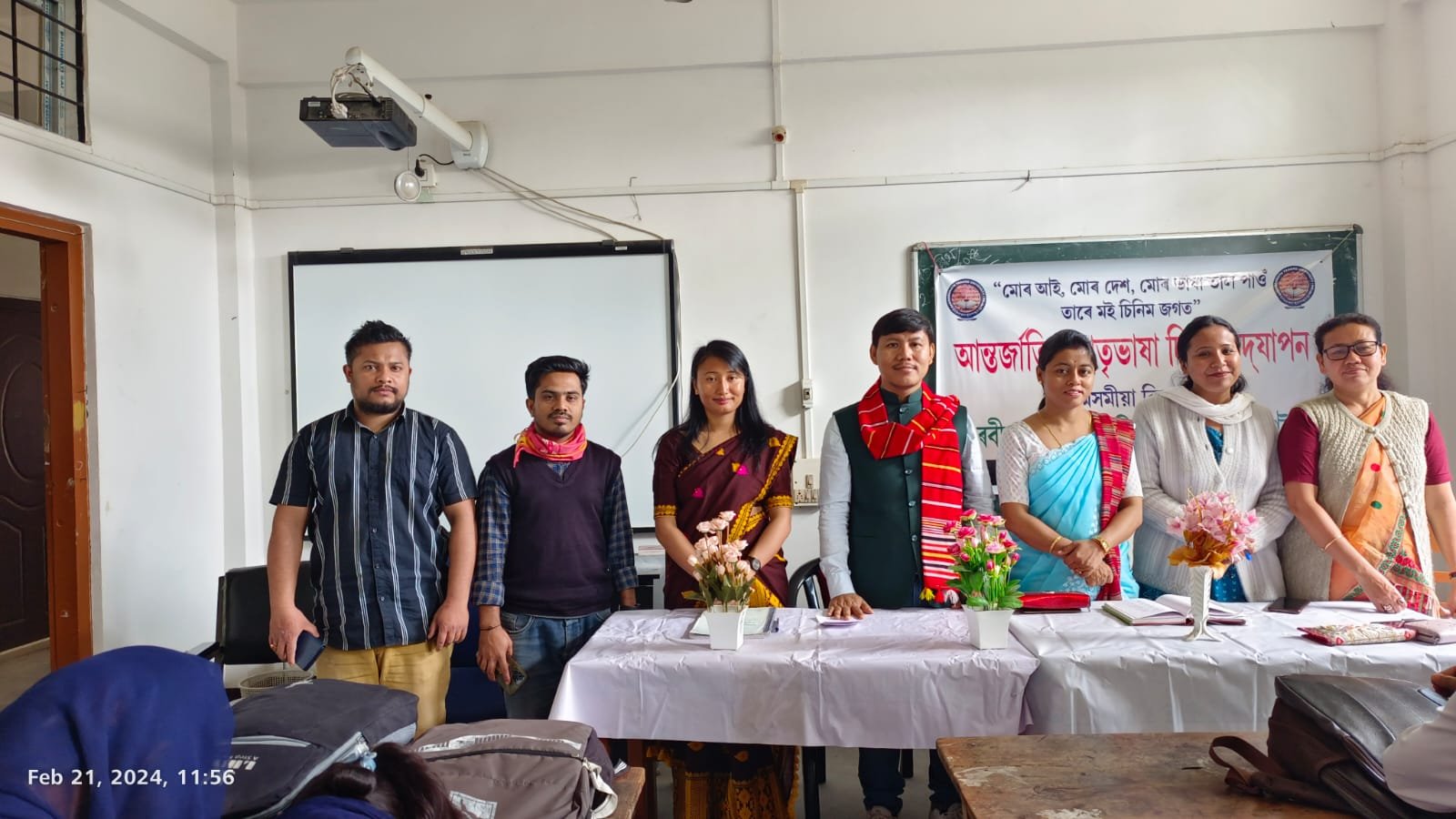
Speaking on the occasion, Mili emphasised the importance of knowing one’s mother tongue and using it in day-to-day life to preserve it. He stated, “Languages bridge the communication gap. We should endeavour to learn new languages and understand other communities’ culture and traditions, as this helps in promoting brotherhood, peace, tranquility, and happiness.”
In the program, assistant professor Manisha Saika, Dr Mallika Deka, and Sayanika Bora (department of Economics) were also present. Teachers along with students recited poems, performed dances, and sang songs, which the audience found interesting. The program concluded with the rendition of the state song ‘O mur apunar desh’.
Our Tezpur correspondent adds: “Language is not just a tool for communication but it is one’s identity,” said Dr Ananda Bormudoi, noted Assamese writer and former head of the department of English at Dibrugarh University, while attending as an invited speaker at Tezpur University on Wednesday. He spoke in a program jointly organised by the departments of Assamese and Hindi to respect the spirit of mother language on International Mother Language Day.
Delivering his insightful lecture, Dr Bormudoi further stated that the mother tongue plays a crucial role in shaping and nurturing an individual’s holistic personality. It provides a deep connection to one’s cultural and familial roots. Language is intertwined with cultural values and traditions, and therefore, the mother language is crucial in developing a holistic and well-rounded personality, he added.
Inaugurating the day-long program, Prof Shambhu Nath Singh, vice-chancellor of Tezpur University, highlighted the challenge of cultural diversity and pluralism in the age of globalisation. He elaborated that only in democracy is it possible to coexist with pluralism and cultural diversity. He further said that one should not impose any language on others but maintain respect for all languages and cultures. Speaking on the growing influence of English in India, the vice-chancellor said that English should be seen as a window of knowledge. However, one should develop their language by putting extra effort into creating a good literature and knowledge base.
Attending the occasion, Dr Joram Yalam Nabam, assistant professor in the department of Hindi at Rajiv Gandhi University, Arunachal Pradesh, emphasised that preserving tribal languages is crucial for cultural and linguistic diversity as these languages carry traditional knowledge and unique customs. She stated that preserving tribal languages goes beyond safeguarding words as it is about preserving identity and connection to the land.
During the program, the department of Assamese also launched their e-magazine ‘Kisholoy’, and a book titled ‘Xorise Xorok Akou Fulibo’, written by Luit Kiran Das, a student of the department of Assamese, was released.



